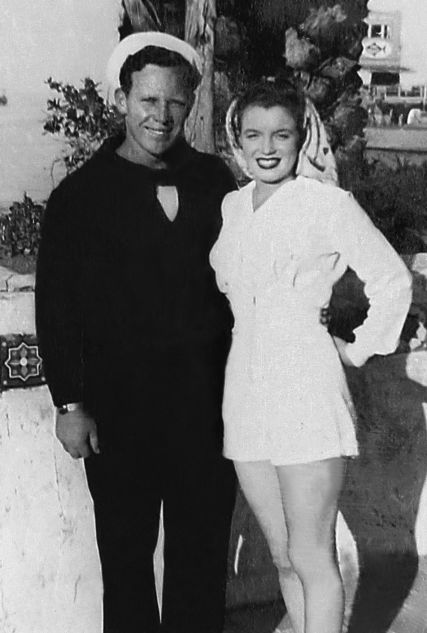On 24 August 1946, Ben Lyon, director of 20th Century Fox, signed a contract with 20-year-old actress and model Norma Jeane Dougherty. Darryl Zanuck, the executive producer of the studio, did not see her as a future star, but agreed to sign the contract, to avoid giving the beautiful actress to competitors from RKO Pictures. Norma Daugherty (née Baker) and Ben Lyon chose her stage name: the name was taken after the Broadway star Marilyn Miller, and Monroe was her mother’s maiden name.
However, the signing of the contract did not begin the greatest celebrity career of the 20th century. Its first consequence was a divorce from her husband, James Daugherty, who was vehemently opposed to Marilyn's work in cinema. The first months did not bring her any roles at all. The real success would come only in the 1950′s, after a course of acting training from Michael Chekhov, a nephew of Anton Chekhov, a great actor and teacher, who fostered the greatest Hollywood actors: Ingrid Bergman, Anthony Quinn, Gregory Peck, Clint Eastwood, and Yul Brynner. Chekhov saw something in her that the omniscient producers never did: “She is an extraordinarily perceptive actress. I condemned the waste of her talent for minor roles, her great potential will be embodied in larger and deeper roles in movies. She has unique acting talent, but she doesn't know how to wield it, to direct it. I have aimed to restore her power over it”.
Marilyn Monroe wrote of him: “I am eternally grateful to fate for meeting this man. I have never met a more talented actor. I think Misha is capable of playing everything from Hamlet to stooge, from Lear to market hustler. But he was even better at teaching. God, what a bliss it is just to talk to Chekhov! We read very serious plays, analysed the pattern of roles, their significance and how one could play this or that role or scene. Looking at him, I understood that the true art of the actor is divine, the same phrase can be played a dozen ways, the same scene can be given different sounding... When Misha Chekhov died in 1955, it was a real shock for me. To lose such a friend and mentor meant a lot more than just losing my acting teacher. He was my second father despite that I never knew my own”.
Source:
Donald Spoto, “Marilyn Monroe: The Biography”, Eagle Large Print, USA, 1993
























